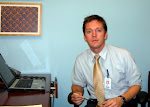Seleted meeting minutes - NGO workshop on child survival in Swaziland, March 28-29
Presentation #1: “Countdown to 2015: Causes, trends and high impact interventions for reducing child mortality in Swaziland” (Dr. Sid Nuripam of UNICEF/MOHSW)
Preface: Child survival by necessity focuses on <5yo as most deaths in this period
Facts on global child survival
o >10 million die from preventable causes in developing world annually
o Millennium Developmnet Goals 4 (MDG4) designed to cut this number
o 60 priority countries (Swaziland included) account for 94% of these child deaths.
Swaziland situation
o <5 mortality in 1990 = 110
o MDG 4 = 37 by 2015
o <5 mortality in 2005 = 156
o Average ‘reduction rate’ = -2.5% (note negative sign)
o Much of this trend is HIV-related
Pie chart presented reflecting causes of death in Swaziland: 47% HIV/AIDS, 27% neonatal (tetanus, infection, asphyxia, etc.), 12% pneumonia, 10% diarrhea, 4% other (malaria, etc.) = 100% total.
There are simple interventions for these preventable/treatable diseases.
Note: Malnutrition not included on the causes of death list because not immediate cause of death, but contributes to >50% of child deaths.
Presentation #2: “Findings of study on NGOs currently supporting high impact Child Survival interventions” ( Ms. Mavis Nxumano , Child Survival Focal Person, MOHSW)
Summary:
§ Strength: 26 NGOs supporting 2+ interventions, half receiving govt support
§ Weakness: NGOs poorly coordinated by MOHSW; poor knowledge of high impact interventions among NGOs
§ Opportunity: NGOs willing to coordinate; “Child Survival Coordinator” identified by MOHSW
§ Threats: Weak leadership at MOHSW; lack of coordination
Discussion excerpts:
· “Government should play a leading role…Please, be seen playing a leading role!”
· “As government, including myself, we are not doing much to put things into place.” “We are the ones who are letting it get away.” “We are missing an opportunity of a lifetime which we may not have ten years down the line.” “If we fold our arms and not bother [the politicians] we will be sorry.” “It’s an embarrassment.” “We are waiting for government for ABC. Who is government? We are government!”
· “I am so pleased to have this kind of meeting. We [government and NGOs] are increasingly working hand in hand…Over the last 3 years, there has developed a sense of cooperation.”
· We need [governmental leadership], “Not the cosmetics of having workshops in expensive hotels.”


0 Comments:
Post a Comment
<< Home